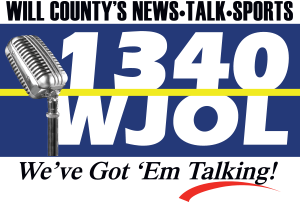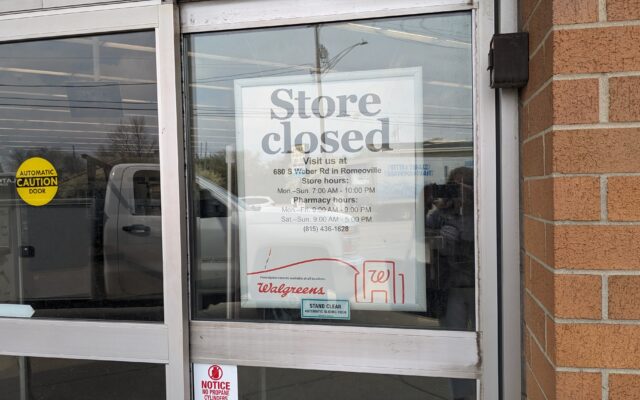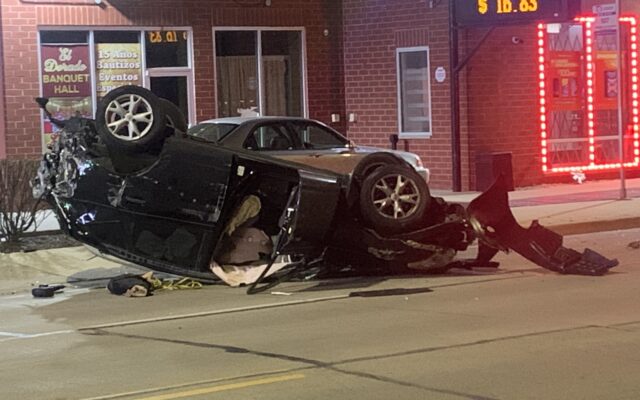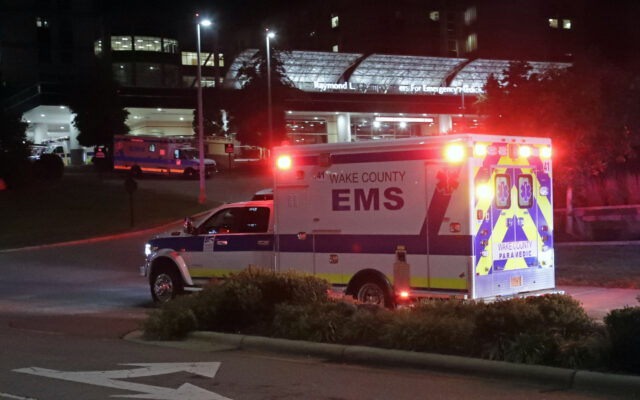Pritzker visits JJC to Share Proposed Investments in Higher Education
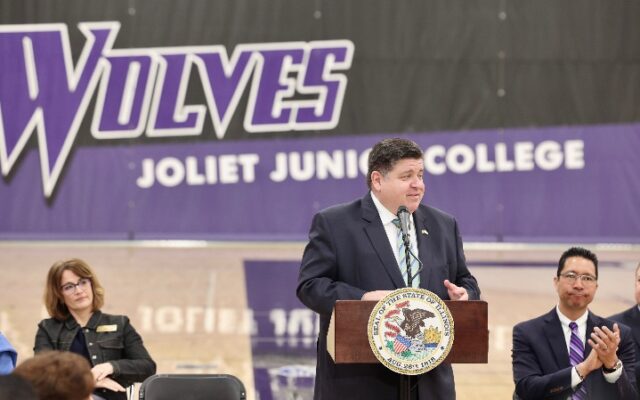
Governor JB Pritzker joined Lt. Governor Juliana Stratton, state officials, and community leaders at Joliet Community College (JCC) to highlight his proposed investments in higher education. The Governor’s FY24 budget calls for the largest increase for community colleges in over two decades and historic investments in financial aid, putting Illinois on track to guarantee every student has access to the education and training they need to thrive.
“Over the last four years, my administration has been laser focused on righting Illinois’ fiscal ship. Because of that work, our state can re-direct funding back into opportunity for Illinoisans, all while maintaining a balanced budget,” said Governor JB Pritzker. “We’ve also increased funding for day-to-day operations at community colleges by over $25 million since I came into office. And my FY24 budget proposal would add another $19 million annually – the largest increase for community colleges in over two decades.”
“The rigorous pace of college and studying for exams is hard enough without worrying about how school bills will be paid. In Illinois, we see you and we care,” said Lt. Governor Juliana Stratton. “That’s why we are investing an additional $100 million in our community colleges and state universities. These institutions are where our state’s brightest go to thrive, and now they are more affordable and accessible for working families. Illinois continues to be the best place in the country to live and go to school.”
“The state’s community colleges are an essential piece to building a capable 21st-Century workforce,” State Rep. Larry Walsh Jr., (D-Joliet). “Gov. Pritzker once again has demonstrated a serious commitment to ensuring that they are well-funded and well-equipped to meet all challenges. Countless professionals have started their journeys at Joliet Junior College, and I know that, with the state’s historic investment in higher education, many more will continue to do so for years to come.”
“An increasingly competitive jobs market often requires advanced education, and it’s vital that Illinois invest so that all our children have an opportunity to take advantage of that,” said State Rep. Barbara Hernandez, (D-Aurora). “Whether it’s from a technical school, vocational school, community college or a four-year university, instruction after high school can create a path to good-paying, sustainable jobs. No kids should be deprived of that.”
“Higher education gives students of all backgrounds the tools they need to find gainful employment and improve their economic standing, on top of the personal and professional growth college provides,” said State Rep. Dagmara “Dee” Avelar, (D-Bolingbrook). “An investment in higher education is an investment in the success and innovation of our state, which is why I am grateful Gov. Pritzker continues to make it a priority.”
At today’s event, Governor Pritzker stood alongside Joliet Community College President Dr. Clyne G. H. Namuo to highlight his proposed investments to higher education, which include a $100 million investment in Monetary Award Program (MAP) grants. This funding would make it the largest investment in state history, representing a 75% increase in the program since he took office.
JCC is the nation’s first public community college, and currently serves approximately 27,000 students each year across six campuses. One out of every five students receive financial aid through MAP grants, which is monetary assistance for school that does not need to be repaid.
Due largely to the COVID-19 pandemic, there has been a nationwide shortage of skilled workers. To address this, Governor Pritzker’sFY24 budget proposes continued funding for the Pipeline for the Advancement of the Healthcare (PATH) Workforce Program to train new nurses, medical assistants, medical laboratory technicians, emergency medical technicians, and other high-demand positions.
From industry to healthcare, JCC is preparing students to work in underserviced fields. The College has a continuing partnership with Lion Electric, the biggest manufacturer of electric vehicles in its segment. Through their Automotive Technology program, degree-seeking students and professional technicians are able to learn about automotive service and repair.
JCC prepares students each year to graduate from the practical and registered nursing program. These students have the benefit of a state-of-the-art simulation center in the Health Profession Center. With investments such as PATH, more students will be able to attend community college for a career in the healthcare industry for free.


Governor JB Pritzker was at Joliet Junior College on Thursday morning to highlight his proposed investments in higher education. The Governor’s FY24 budget calls for the largest increase for community colleges in over two decades and historic investments in financial aid, putting Illinois on track to guarantee every student has access to the education and training they need to thrive.
“Over the last four years, my administration has been laser focused on righting Illinois’ fiscal ship. Because of that work, our state can re-direct funding back into opportunity for Illinoisans, all while maintaining a balanced budget,” said Governor JB Pritzker. “We’ve also increased funding for day-to-day operations at community colleges by over $25 million since I came into office. And my FY24 budget proposal would add another $19 million annually – the largest increase for community colleges in over two decades.”
At today’s event, Governor Pritzker stood alongside Joliet Community College President Dr. Clyne G. H. Namuo to highlight his proposed investments to higher education, which include a $100 million investment in Monetary Award Program (MAP) grants. This funding would make it the largest investment in state history, representing a 75% increase in the program since he took office.
JCC is the nation’s first public community college, and currently serves approximately 27,000 students each year across six campuses. One out of every five students receive financial aid through MAP grants, which is monetary assistance for school that does not need to be repaid.
